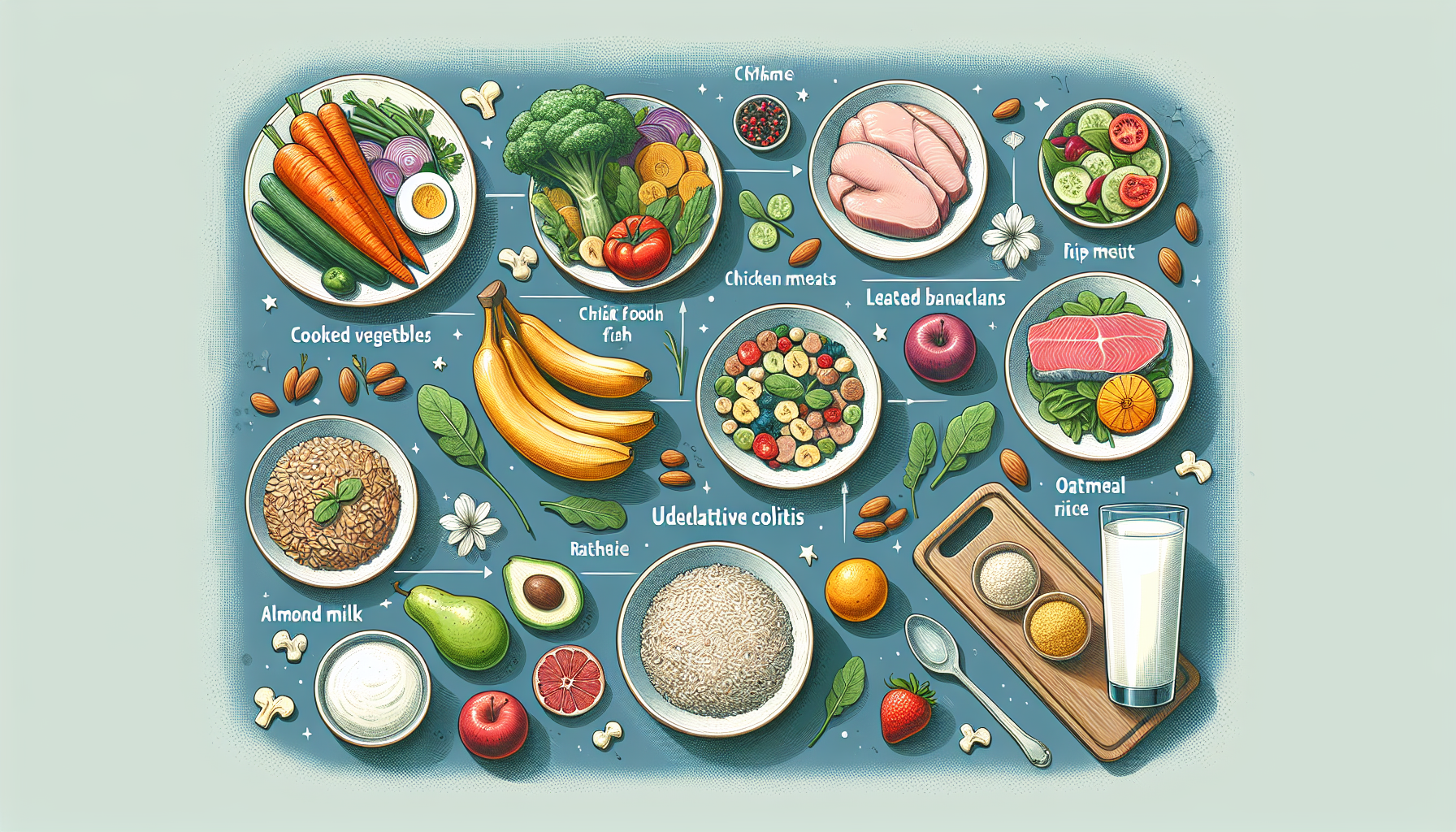Ulcerative colitis (UC) is a chronic inflammatory bowel disease (IBD) characterized by inflammation in the colon and rectum. While the exact cause of UC is unknown, it is believed that a combination of genetic, environmental, and immune system factors contribute to its development. One of the primary environmental factors that can influence UC symptoms is diet. Although there is no one-size-fits-all diet for individuals with UC, certain dietary strategies can help manage symptoms and potentially reduce the frequency of flare-ups.
Understanding Ulcerative Colitis and Diet
The relationship between diet and UC symptoms can be complex, with different foods triggering symptoms in different individuals. It is crucial to identify and avoid personal trigger foods, which may include high-fiber foods, dairy products, spicy foods, alcohol, and caffeine. Conversely, some foods may help reduce inflammation and support a healthy digestive system.
The Role of a Balanced Diet
A balanced diet is essential for maintaining overall health and can be particularly beneficial for those with UC. This includes eating a variety of fruits, vegetables, lean proteins, and whole grains, while ensuring adequate intake of essential nutrients. However, during flare-ups, high-fiber foods can exacerbate symptoms, so a low-residue diet may be recommended to minimize abdominal pain and diarrhea.
Importance of Hydration
Dehydration can be a risk for those with UC, especially during flare-ups when diarrhea is common. It is vital to drink plenty of fluids, preferably water, to stay hydrated. Electrolyte solutions or sports drinks can also be helpful to replace lost salts and minerals.
Dietary Strategies for Managing UC
Identifying Trigger Foods
Keeping a food diary can help individuals with UC identify their specific trigger foods. By recording foods consumed and symptoms experienced, patterns may emerge that can guide dietary adjustments.
The Low-FODMAP Diet
The low-FODMAP diet can be beneficial for some people with UC. FODMAPs (Fermentable Oligo-, Di-, Mono-saccharides And Polyols) are short-chain carbohydrates that can be poorly absorbed in the gut and may exacerbate symptoms. By reducing these foods, some individuals may experience relief from abdominal pain, bloating, and diarrhea.
Probiotics and Fermented Foods
Incorporating probiotics and fermented foods into the diet may help maintain a healthy gut microbiome, which is important for digestive health. Fermented foods like yogurt, kefir, and sauerkraut contain beneficial bacteria that can aid digestion and reduce inflammation.
Read more about the benefits of fermented foods for gut health.
Nutritional Considerations and Supplements
Addressing Nutritional Deficiencies
Due to the nature of UC, individuals may be at risk of nutritional deficiencies. It is important to work with a healthcare provider to monitor for deficiencies in vitamins and minerals such as iron, vitamin D, calcium, and zinc, and to use supplements if necessary.
Omega-3 Fatty Acids
Omega-3 fatty acids are known for their anti-inflammatory properties and may help manage inflammation in UC. Sources of omega-3 include fatty fish like salmon, flaxseeds, and walnuts, or through supplementation.
Explore the role of omega-3 fatty acids in digestive health.
Turmeric
Turmeric contains curcumin, a compound with anti-inflammatory effects. Some studies suggest that curcumin may help reduce UC symptoms, though more research is needed.
Discover more about the impact of diet on digestive health.
Lifestyle Considerations
Stress Management
Stress can exacerbate UC symptoms, so stress-reduction techniques such as meditation, yoga, or deep-breathing exercises can be beneficial.
Learn about evaluating the impact of stress on colon health.
Regular Exercise
Regular, moderate exercise can improve overall health and may help reduce the frequency of UC flare-ups.
External Resources for Further Support
- The Crohn’s & Colitis Foundation provides a wealth of resources and support for individuals with IBD, including dietary guidance for managing UC.
- The International Foundation for Gastrointestinal Disorders offers information on various digestive health topics, including diet and nutrition for those with IBD.
- The United Ostomy Associations of America can be an invaluable resource for those who have had surgery due to UC, offering diet and lifestyle tips for post-surgery life.
It is important to note that while diet can play a significant role in managing UC symptoms, it should not replace medical treatment prescribed by healthcare professionals. Ulcerative colitis is a serious medical condition that requires careful monitoring and treatment. Always consult with a healthcare provider before making any significant changes to your diet or treatment plan.
In conclusion, managing ulcerative colitis symptoms through diet involves a personalized approach that focuses on avoiding trigger foods, maintaining proper hydration, incorporating anti-inflammatory foods, addressing nutritional deficiencies, and considering the use of supplements. Alongside medical treatment, these dietary strategies can help improve quality of life for those living with UC.


